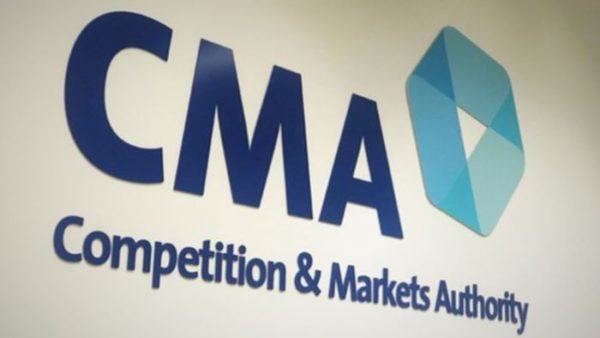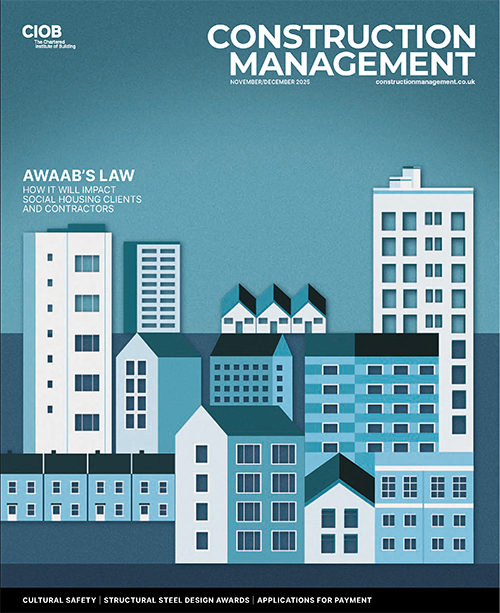
The mayor of London has warned that 43,000 UK construction jobs are at risk if there is a “no deal” hard Brexit.
Sadiq Khan’s grim forecast is based on research from economic analyst Cambridge Econometrics, which indicates that Britain’s exit from the European Union could lead to a lost decade of lower employment and economic growth, with the country potentially having 500,000 fewer jobs in the worst-case scenario and nearly £50bn less investment by 2030.
London would be less affected, but there would still be 5,000 construction jobs affected, and as many as 87,000 fewer jobs overall. The capital’s economic output could be 3% lower, compared to between 3% and 3.3% for the rest of the country, according to the report commissioned by the mayor.
Khan said: “This independent analysis reveals the potential economic risks – and human costs – at stake in the negotiations. It should help guide the government to the best outcome for London and the UK.
The analysis concludes that the harder the Brexit we end up with, the bigger the potential impact on jobs, growth and living standards. A “no deal” hard Brexit is still a very real risk – the worst possible scenario.
Construction jobs forecasts from Khan’s Brexit report
Skills
One of the major issues facing the construction sector is the shortage of skills. The sector currently relies heavily on a foreign migrant labour force. Almost 13% of construction workers across the UK were born abroad, and in London and the South East, this proportion increases to 50%. In particular, 25% of employees in the sector in London were born in the EEA31.
Once the UK leaves the Single Market, it is likely that the skills shortage could get worse, if the new agreements don’t allow for free movement of people. This could result in even higher pressures on wages, as labour supply contracts, causing construction firms to face considerably higher project costs.
Additionally, this could reduce firms’ capacity to deliver new houses to meet the government’s housing targets, and further deepen the housing crisis, especially in London. The labour market issues the construction sector faces are reflected as an expected fall in productivity in the macro modelling assumptions.
Trade impact
Once the UK leaves the Single Market, the construction sector is also likely to be affected by trade impacts. A 2010 study by the Department for Business Skills and Innovation highlights how reliant the UK construction sector is on the rest of the EU, estimating that 64% of building materials were imported from the EU, and 63% were exported to the EU.
If the UK faces a reduction in access to the EU market following Brexit, construction firms could experience an increase in their costs or a shortage of building materials, as they face an increase in tariffs or limits on quantities imported, which is reflected in the trade assumptions applied to this sector.
Funding and investment
At the moment, the UK construction sector benefits from having access to the European Investment Bank (EIB) and the European Investment Fund (EIF), which have invested €7.8bn in major infrastructure projects, and lent €666m to SMEs in 201532.
A loss of these financial aids could significantly impact the ability of firms to deliver big infrastructure projects such as High-Speed 2 and reduce development opportunities for start-ups.
Additionally, foreign investment could dampen due to uncertainty over the UK economy following Brexit, and as investors delay making decisions on the future of projects. This loss of potential future investment has been reflected as a fall of up to €852m in investment in the sector by 2030, depending on the scenario and the severity of Brexit.
The full report can be accessed here
Comments
Comments are closed.











What absolute rubbish!
These is no possibility that anyone can predict what might happen when the Brexit negotiations have concluded! Why the press give any credence to all of the various predictions I really do not know. As someone who has spent a lifetime carrying out acrimonious negotiations in the construction industry with some of the most obnoxious people ALL of the commentators and politicians clearly have no understanding of negotiations or of the possible outcome.
Whatever the outcome we will be pragmatic and just get on with it. Who knows what the consequences of us leaving will be, at the moment it looks like the EU will fall apart and other European countries will deal with us separately and to our benefit
This man is a Labour Remainer & needs to stick to his role as Mayor of London! He’s commissioned this report at what cost to the taxpayer, this is the job of government not a mayor’s? And don’t forget, we’ve had enough of prophesies from ‘experts’! If we are to build 300,000 houses a year, then there will need to be more construction jobs not less! No use doom mongering over loss of labour & skills as ‘free movement’ will be ‘free movement for workers’. For goodness sake stop ‘Remoaning’! As an MP & mayor of London Mr Khan should be talking UK up not down, we’ve been shackled by the failing EU project for far too long! When we LEAVE the EU & stop paying their ridiculous membership fee, there will be our own money to invest in our great country. This is a very disappointing negative tirade from Mr Khan, but sadly no less than expected – stick to the day job!
The London mayor is a known remainer, who is still telling lies and spreading false news.
With the level of investment by government and private industry, since the referendum job creation has increased, particularly where offices, homes and shops are increasing by the day.
Look at the housebuilders’ financials, the office building and refurb, the number of stores Lidl and Aldi are planning. This is clearly spreading out across the country, visit Birmingham, Liverpool and Manchester.
Look at the major projects, Heathrow, HS2, Crossrail 2 all coming through over the next couple of years. There is a construction labour shortage, in fact we probably need 43,000 extra workers.
To summarise the EU contributions…….the EIF simply gives us back some of what we pay in. The financing will adjust accordingly.
To summarise the industry…………..we do not have enough skilled workers, capable engineers and management now and in the pipeline. The industry will adjust as it always does. I’m sure we will do just fine.
To summarise the country………..London in particular is unique. It and it’s ripple effect towards the Home Counties does not reflect the nation generally.
Sadly all of the above is true – London needs a new positive mayor and the sooner the better.
It is so sad that Brexiters hoped that we will never read such reports, as they simply thought that everything will stay the same but we shall happily be out of the clutches of EU. Well, we now know that we can’t have the cake and eat it as well. Overall loss is worst than so-called full control of whatever. How can you have full control if you lose economic lustre? Controlling what? losses and losess and more losses??
Khan is trying to divert attention away from his failure as a mayor for London. The more he can produce highly speculative articles such as this the longer he thinks the media will leave him alone. Sadly despite his poor performance he wil probably get re-elected solely because of the demographics in London.
So it’s going to become more difficult to import skilled labour? Well we best all be getting on with spending more time money and effort into training the 850,000 or so NEET’s.
More pro EU propaganda from a remoaner mayor who has not got a handle on the job he is supposed to be doing.
Why did the Construction Manager magazine entertain this nonsense?
You all seem to regard as nonsense the stats in this article, starting with 13% of construction workers come from abroad. Their wages probably undercut those paid to their British counterparts. Were we to be able to train up skilled construction workers purely of British extraction to plug the gap, not only would the industry incur training costs but they would have to meet higher wage expectations and pass these costs onto the house buyer. Housing is unaffordable as it is.
The other relevant statistic for the economy as a whole is that 64% of building materials are imported and we sell 63%. This surely is a sign of healthy trading relations without the imposition of tariffs.